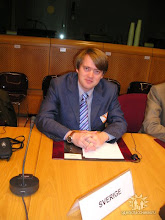As the development of international law after the Second World War showed, Dr. Lemkin was right in many of his arguments: by 1950, the International Law Commission would have derived from the Nuremberg Tribunal's Charter and Judgment a number of principles,[1] which would soon after be recognised as laying ground for the development of international criminal law, and specific provisions concerning individuals' liability for the commission of international crimes would be integrated in regional and universal human rights law instruments.[2] In turn, as the United Nations was founded in 1945, Dr. Lemkin suggested that Members of the new universal Organisation, together with as many non-Members as possible, should enter into an international treaty for the purpose of defining genocide as an international crime and laying ground for its prevention and punishment in time of peace and war. According to him, the treaty should have embodied, inter alia, the following principles:
– The crime of genocide should be recognised as a conspiracy to exterminate national, religious or racial groups. The overt acts of such a conspiracy may consist of attacks against life, liberty or property of members of such groups merely because of their affiliation with such groups. The formulation of the crime may be as follows: "Whoever, while participating in a conspiracy to destroy a national, racial or religious group, undertakes an attack against life, liberty or property of members of such groups is guilty of the crime of genocide";
– The crime so formulated should be incorporated in every national criminal code of the signatories. The defendants should be liable not only before the courts of the country where the crime, was committed, but in case of escape shall be liable as well, before the courts of the country where they are apprehended;
– Persons accused of genocide should not be treated as political criminals for purposes of extradition. Extradition should not be granted except in cases where sufficient evidence exists to indicate that the requesting country would earnestly prosecute the culprits;
– The liability for genocide should rest on those who gave and executed the orders, as well as on those who incited to the commission of the crime by whatever means, including formulation and teaching of the criminal philosophy of genocide. Members of government and political bodies which organised or tolerated genocide should be equally responsible;
– Independently of the responsibility of individuals for genocide, states in which such a policy is carried out should be held accountable before the Security Council of the United Nations. The Council may request the International Court of Justice to deliver an advisory opinion as to whether genocide exists within a given country before invoking, among other things, sanctions to be levelled against the offending country. The Security Council may act either on its own initiative or on the basis of petitions submitted by members of interested national, religious or racial groups residing either within or without the country in question;
– The Hague Convention and other pertinent treaties should be amended to the effect that in case of war, an international body (such as the International Red Cross) should have the right to supervise the treatment of civilian populations by occupants in time of war in order to ascertain whether genocide is being practiced by such occupants;
– A multilateral treaty for the prevention and punishment of genocide should not preclude two or more countries from entering into bilateral or regional treaties to provide for more extensive protection against genocide.[3]
[1] See "Principles of International Law recognized in the Charter of the Nürnberg Tribunal and in the Judgment of the Tribunal, with commentaries", Yearbook of the International Law Commission, volume II (1950), pp. 374 – 378
[2] See, for example, ICCPR, Art. 15(2); ECHR, Art. 7(2)
[3] See R. Lemkin, supra note 4, at 230
Subscribe to:
Post Comments (Atom)

No comments:
Post a Comment